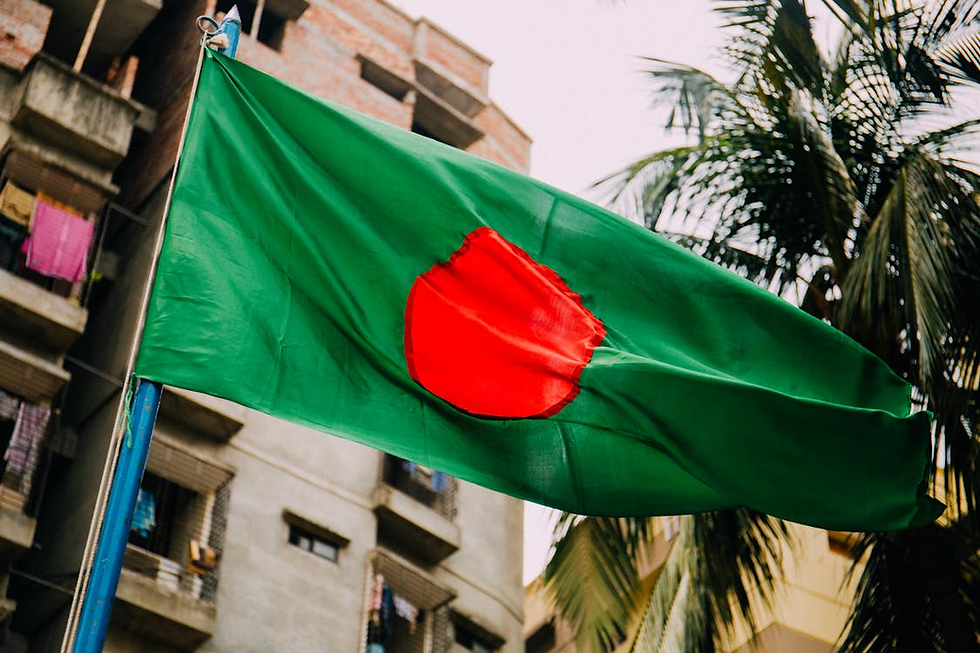Tokyo 2020: The Olympics of Firsts
- Dylan Davies

- Jul 25, 2021
- 3 min read
Updated: Dec 23, 2024
After a long year of waiting, Olympic fans can finally see their nation compete in arguably the most prestigious event on the sporting calendar. With the Games having started on Friday the 23rd of July, there is still speculation as to whether or not they are safe to attend. The cancellation of last year's Olympics was a rare sight, having occurred only three other times in 1916, 1940, and 1944 due to the crises of World War One and World War Two.

Due to take place in July and August of 2020, the organisers fought for the Games to continue in spite of the coronavirus pandemic. However, by March 2020, the Games were postponed by the former Japanese prime minister, Shinzō Abe, due to concerns about the high rates of COVID-19 in Tokyo. Pressures from countries also mounted on the Japanese authorities, after nations such as Canada and Australia refused to send their sporting representatives unless the Games were postponed. The Paralympic Games also suffered a delay, with the Games now being held from August to September 2021 after a one-year postponement.
Even with the postponement of the Olympics, the coronavirus crisis still casts a long shadow over Tokyo. The city is currently in a state of emergency due to the pandemic, and is expected to continue this way until the 22nd of August. Consequentially, spectators have been banned from the stadiums where the Games will take place. Inside the Olympic village, coronavirus is beginning to infect athletes despite the preventative measures in place. Two South African footballers were the first cases to be confirmed in the village just five days before the Games began, fortunately only experiencing mild symptoms. However, renewed concerns about the safety of the event emerged once more, with claims that it could be postponed again on short notice.
Another challenge is not only threatening the Games, but Japan itself. Currently, Japan owes around $13 trillion in debt, roughly equating to 266% of its GDP, leaving Japan vulnerable to economic crises. In preparation for the Tokyo 2020 Games, the government has spent around $12.6 billion, which includes a 27-billion-yen “contingency pot” to deal with any potential natural disasters. However, the local Olympic organising committee has announced a 22% increase in the budget of the games, bringing the total to just under $15.5 billion. This addition of $2 billion is due to the pandemic, affirm the organisers. When Tokyo launched its bid in 2013, organisers estimated the games would cost $7.5 billion. However, this 200% increase makes Tokyo 2020 the most expensive Summer Games currently on record.
The Tokyo Olympic Chief has also faced heavy criticism over his sexist comments towards women. Yoshirō Mori, 83, former prime minister of Japan, was quoted saying that women talk too much, and that meetings with female board members would often “take a lot of time”. Since making these comments he has sparked international outrage, with athletes such as Naomi Osaka saying that his comments were “really ignorant”. Initially, Mr. Mori resisted calls to resign, but eventually stepped down in February 2021 to make way for new leadership. This new leadership comes in the form of speed skater and track cyclist, Seiko Hashimoto. Her appointment is viewed as a big step for gender equality, as she is one of the first females to ever hold this position.
Despite all the fear surrounding the Games due to the pandemic, Tokyo 2020 is a series of firsts for all people. A total of six new sports will be added to this year’s Olympics, consisting of surfing, skateboarding, sport climbing, baseball, softball, and karate. It is also a first for Laurel Hubbard, New Zealand athlete and the first transgender competitor in the Games’ history. Despite criticisms that say that Hubbard has an advantage over cisgender athletes, IOC President Thomas Bach confirms that Hubbard is still allowed to compete in the Games under the current weightlifting regulations set by the International Weightlifting Federation.
In addition, medals awarded during the competition will be made out of recycled materials: primarily electronic waste. About 650,000 tonnes of small electronics and appliances are discarded in Japan annually, but less than 100,000 are recyclable. In preparation for the Games, the Japanese government launched the “Tokyo 2020 Medal Project”, aimed at collecting waste from around Japan to use to create the medals. The project brought in an estimated 79,000 tonnes of electronics - including 6.21 million mobile phones. A statement by the Tokyo Organising Committee of the Olympic and Paralympic Games records the hope that their sustainability project “will become a lasting legacy of the Tokyo 2020 Games”.
Tokyo 2020 will consist of many firsts against the backdrop of the coronavirus pandemic, pioneering the way for social and environmental change, and uniting fans in the face of adversity.

_edited.png)



Comments